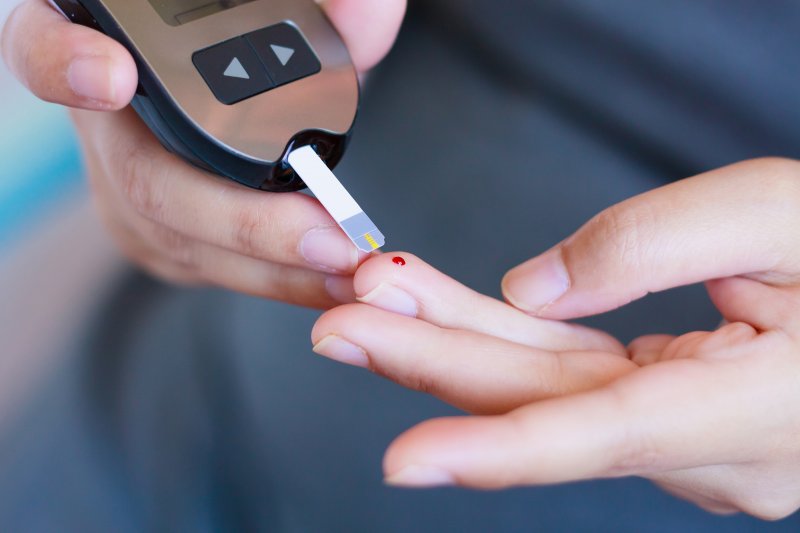
Most of the time, you probably think about your dental checkups as being all about your oral health. While this is the main focus, there is much more to your regular dental visits than just cleaning away plaque and having your teeth polished. In addition to those steps, your dentist also checks for abnormalities that could indicate that you are dealing with a medical condition elsewhere in the body. Read on to learn about the different medical conditions that your dentist might discover before anyone else does.
Diabetes
If you have diabetes, you are much more likely to develop gum disease. If your dentist notices signs of periodontal disease like bleeding, inflammation, gum recession, or wiggly teeth, this may mean that you have some underlying issues that need to be treated. Because gum disease can develop as a result of poor oral hygiene, diabetes isn’t always a culprit. Because oral health and diabetes are closely linked, if your dentist suspects that diabetes could be the case, they will likely recommend a blood test from your primary care doctor.
Anemia
Anemia is incredibly common. According to the World Health Organization (WHO), anemia affects approximately 1.62 billion people in the entire world. This adds up to about 24.8% of the global population. This condition occurs when your body doesn’t have enough red blood cells circulating and it can sometimes be detected in the mouth. This is because it can cause the lining of the mouth to appear very pale. The tongue may also lose its bumpy texture.
Heart Disease
If a dentist notices that a patient has swollen, bleeding gums, this could point to heart disease. This is because gum disease can put patients at higher risk of both coronary artery disease and heart disease. Bacteria in the mouth can travel to the heart and form blood clots or build up plaque in the arteries.
Crohn’s Disease
There are many signs of Crohn’s disease that are apparent in the mouth. This includes swollen lips with a dime-sized ulcer on the inside of the cheeks. Most of the time, they have a white center with a red halo around it. If your dentist thinks that you might have this condition, they will recommend that you see your family dentist to get the issue checked out.
Osteoporosis
There aren’t very many symptoms of this disease, so many people don’t know that they have it until they experience a bone fracture or take a bone density test. When you go to the dentist, they may be able to pick up on this issue by noticing jawbone shrinkage. This could mean that the same loss of density is occurring in other areas of the body as a result of osteoporosis.
Don’t forget to schedule your regular checkups. You never know what kinds of things that your dentist can discover.
About the Author
Dr. Tommy Murph is an experienced dentist who has been in practice for over 25 years. He earned his Doctor of Dental Medicine from the Medical University of South Carolina and has completed over 600 hours of continuing education courses since. He is currently a member of the American Dental Association and the South Carolina Dental Association. For more information on preventive care or to schedule an appointment with Dr. Murph at his office in Conway, visit his website or call (843) 488-4357.
